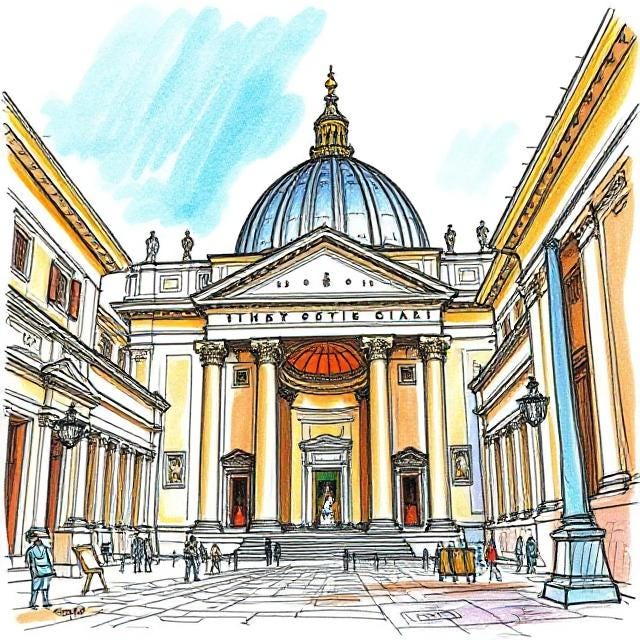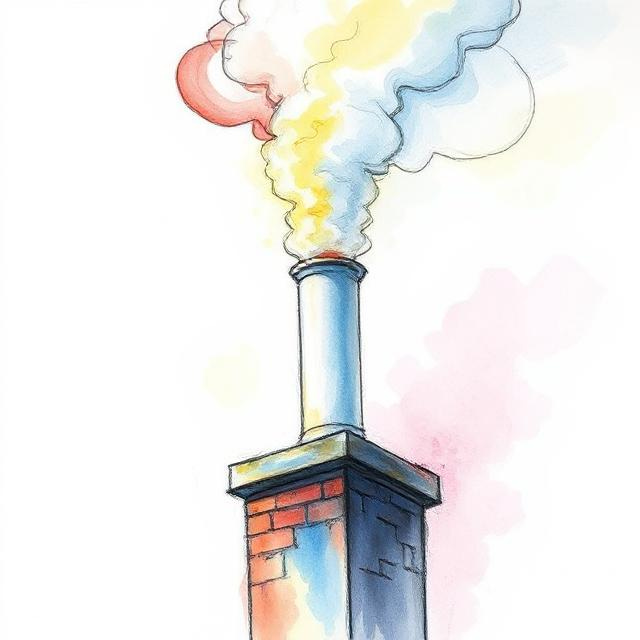In 2013, 117 cardinals - all dressed in red - locked themselves into the Sistine Chapel to elect the next pope. Pope Benedict XVI had resigned, the first pope to do so in more than 600 years, leaving the most powerful seat in the Catholic faith vacant.
The pope is an elected figure, chosen by cardinals during a ‘papal conclave’. The cardinals are supposedly guided by God in their vote, but also no doubt guided by their own allegiances, preferences and even ambitions. It is an election like no other: every cardinal is both a voter and a candidate (in fact, any Catholic male is a candidate - though a cardinal has been elected every time since the 14th century). Cardinals are sequestered: the outside world sees or hears nothing of the election, beyond an occasional plume of smoke to indicate whether a verdict has been reached. The ballots are burned after casting.
Voting goes on until one candidate achieves a two-thirds supermajority: meaning these elections can go on for a while. The papal election in 1268 lasted almost 3 years with cardinals repeatedly failing to agree: city officials eventually cut their food rations to pressure them into a verdict.
Extra omnes!
Everybody out! - the Papal Master of Ceremonies’ words to begin the voting process
In 2013, 5,600 journalists descended upon the Vatican to cover the papal conclave. A Faraday cage was installed to ensure no communications could get in or out of the Sistine Chapel.
Two days after voting began, white smoke began to puff out of the chimney, indicating a pope had been chosen. Jorge Mario Bergoglio, who chose the name Pope Francis, became the first Latin American pope - surprising commentators.
Pope Francis has been a popular figure. He is, by Catholic standards, liberal. He said Heaven was open to atheists, allowed women to take on senior positions, and allowed priests to administer blessings to same-sex couples.
OK, so he’s not exactly a liberal hero - but his “who am I to judge” mentality has earned him a certain mainstream popularity. But it’s also made his position precarious: he has critics on both sides. Some say he is too liberal, and that he rejects thousands of years of tradition. Others that he has failed on his promise to radically reform the church.
After all, the papacy is not so different from any other political position, and Pope Francis not so different from any other politician.
But, as his health deteriorates, the cardinals are no doubt digging out their passports, and preparing for the moment that they will be required to return to the Vatican, lock the doors of the Sistine Chapel, and elect his successor.
But who will it be?
Eligo in Summum Pontificem
I elect as Supreme Pontiff - the words on a papal conclave ballot paper, followed by a blank space
Overtly campaigning to be pope is an excommunicable offence: so these politicians must be a little more subtle. Our only indicators of who might want the top job is who has been giving slightly more high-profile mass recently.
There are a few contenders. Cardinal Zuppi, an Italian, is considered the spiritual successor to Francis. He’s said positive things about the LGBT community, a bold thing to do for a potential-pope (a potential pope is called a papabile).
But if the cardinals follow the trend of the rest of the world, they will vote for change. That could mean a more conservative candidate, more of a traditionalist - in contrast to Francis’ liberal streak.
The world is also seeing an anti-woke streak, will the cardinals find themselves on that bandwagon? Hungarian Cardinal Peter Erdö has been outspoken on issues like the refugee crisis, and opposes divorced Catholics from receiving Holy Communion.
Or perhaps, with a world in turmoil, the cardinals will choose an inoffensive candidate. There are a few North American contenders who are more tight-lipped on their views, but might be good options in a world where the most powerful man has an American-first mentality.
Like a monarch, the pope is far more important and influential than his actual powers would suggest. For one, he has legions of followers - but perhaps more importantly, as a diplomat, as a figurehead and an influencer, he shapes the global conversation with moral authority. He is far more than a religious figure, he is a political one too.





